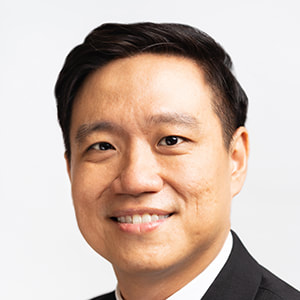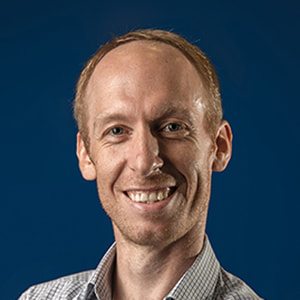Abstract
Atopic dermatitis is the most common inflammatory skin condition affecting about 20% of children and 10% of adult. It typically presents with a relapsing itchy rashes affecting mainly flexurals. However, it is a heterogenous skin disease with a myriad of disease presentations among different ethnic groups and country regions. While it is largely a Th-2 disease, there have been recent reports of elevated Th-17 or Th-22 cytokines among AD patients of certain ethnic groups. This heterogeneity has posed challenges in its diagnosis as there is still no common consensus on disease diagnostic criteria. This has impact on disease definitions in clinical trials and research studies. I will go through the different common presentations of AD as well as the various AD diagnostic criteria. The different disease severity classifications of AD will also be discussed. With novel biologics and small molecules in AD, it will also be important to appreciate these new developments as it is a testimony to how understanding of disease pathways may lead to its translation in clinical practice.
Atopic dermatitis is the most common inflammatory skin condition affecting about 20% of children and 10% of adult. It typically presents with a relapsing itchy rashes affecting mainly flexurals. However, it is a heterogenous skin disease with a myriad of disease presentations among different ethnic groups and country regions. While it is largely a Th-2 disease, there have been recent reports of elevated Th-17 or Th-22 cytokines among AD patients of certain ethnic groups. This heterogeneity has posed challenges in its diagnosis as there is still no common consensus on disease diagnostic criteria. This has impact on disease definitions in clinical trials and research studies. I will go through the different common presentations of AD as well as the various AD diagnostic criteria. The different disease severity classifications of AD will also be discussed. With novel biologics and small molecules in AD, it will also be important to appreciate these new developments as it is a testimony to how understanding of disease pathways may lead to its translation in clinical practice.
Bio
Yik Weng is a Consultant Dermatologist at the National Skin Centre (NSC) with strong clinical and research interests in atopic dermatitis (AD), psoriasis dermato-epidemiology and, disease outcomes research. He is currently the deputy head of the NSC Research Division and head of Eczema clinic, NSC. He completed his dermatology residency in 2014 at NSC. After his dermatology training, he obtained a Masters of Public Health to further his training in epidemiology research from the Harvard School of Public Health, USA in 2015. He was awarded the National Healthcare Group Clinician Scientist Career Scheme award in 2016 and started his PhD studies at Lee Kong Chian School of Medicine, NTU, Singapore to study disease prevalence and associations of atopic dermatitis in a general adult population cohort. He is active in various types of research in AD and collaborates with various local and overseas institutes on population-based cohort studies, clinical trials, basic and translational AD research on omics, skin microbiome and skin bioimaging.
Yik Weng is a Consultant Dermatologist at the National Skin Centre (NSC) with strong clinical and research interests in atopic dermatitis (AD), psoriasis dermato-epidemiology and, disease outcomes research. He is currently the deputy head of the NSC Research Division and head of Eczema clinic, NSC. He completed his dermatology residency in 2014 at NSC. After his dermatology training, he obtained a Masters of Public Health to further his training in epidemiology research from the Harvard School of Public Health, USA in 2015. He was awarded the National Healthcare Group Clinician Scientist Career Scheme award in 2016 and started his PhD studies at Lee Kong Chian School of Medicine, NTU, Singapore to study disease prevalence and associations of atopic dermatitis in a general adult population cohort. He is active in various types of research in AD and collaborates with various local and overseas institutes on population-based cohort studies, clinical trials, basic and translational AD research on omics, skin microbiome and skin bioimaging.
Abstract
Atopic dermatitis (AD) is a chronic, relapsing, inflammatory skin disorder characterized by epidermal barrier dysfunction, immune cell activation and alterations in the skin microbiota. A complex interplay between these multiple factors underlies the pathogenesis of AD. Numerous genetic susceptibility loci have now been identified, however, the major and most significant risk factor is still loss-of-function mutations in the filaggrin (FLG) gene. We and others have shown that FLG mutations are important in the majority of ethnicities around the globe, however, the mutations that have arisen are extremely divergent and whole gene analysis is recommended to fully understand FLG mutation burden. Recently there have also been links between various genetic factors and alterations in the microbiome in patients with AD. Staph aureus has long been known to be a major player during flare and infection, and now the microbiome is being investigated to identify the positive effect symbionts and microbiome alterations can provide to improve skin health. Future therapies harnessing microbiome innovations can, therefore, be incorporated into treatment strategies to improve the skin of patients with atopic dermatitis
Atopic dermatitis (AD) is a chronic, relapsing, inflammatory skin disorder characterized by epidermal barrier dysfunction, immune cell activation and alterations in the skin microbiota. A complex interplay between these multiple factors underlies the pathogenesis of AD. Numerous genetic susceptibility loci have now been identified, however, the major and most significant risk factor is still loss-of-function mutations in the filaggrin (FLG) gene. We and others have shown that FLG mutations are important in the majority of ethnicities around the globe, however, the mutations that have arisen are extremely divergent and whole gene analysis is recommended to fully understand FLG mutation burden. Recently there have also been links between various genetic factors and alterations in the microbiome in patients with AD. Staph aureus has long been known to be a major player during flare and infection, and now the microbiome is being investigated to identify the positive effect symbionts and microbiome alterations can provide to improve skin health. Future therapies harnessing microbiome innovations can, therefore, be incorporated into treatment strategies to improve the skin of patients with atopic dermatitis
Bio
Dr John Common is a Principal Investigator at A*STAR, Skin Research Institute of Singapore and previously held the same position at A*STAR, Institute of Medical Biology. John’s laboratory focuses on studying skin biology, the mechanisms of skin barrier function and inflammatory skin diseases, including atopic dermatitis and alopecia areata. John obtained his PhD from the Centre for Cutaneous Research, Queen Mary University of London in 2004 and moved to Singapore in 2005 to work with Birgit Lane on disease mechanisms of keratin disorders.
Dr John Common is a Principal Investigator at A*STAR, Skin Research Institute of Singapore and previously held the same position at A*STAR, Institute of Medical Biology. John’s laboratory focuses on studying skin biology, the mechanisms of skin barrier function and inflammatory skin diseases, including atopic dermatitis and alopecia areata. John obtained his PhD from the Centre for Cutaneous Research, Queen Mary University of London in 2004 and moved to Singapore in 2005 to work with Birgit Lane on disease mechanisms of keratin disorders.
Chairs
Leah Vardy, SRSS & SRIS
Etienne Wang, SRSS & NSC
Leah Vardy, SRSS & SRIS
Etienne Wang, SRSS & NSC
Attendance is free but registration is required.
Kindly cancel your registration in case your plans change.
Kindly cancel your registration in case your plans change.


